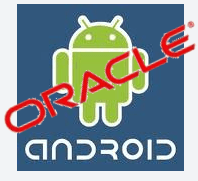| Further moves in Oracle versus Google lawsuit |
| Written by Sue Gee |
| Monday, 02 May 2011 |
|
There were further developments in the Oracle versus Google lawsuit last week when a claim construction order, defining the scope of patent rights was issued. What does this mean for the future of Android? This order covered terms in three of the seven patents that are at issue and Judge William Alsup sided with Oracle on four of the five patent terms and came up with his own definition for the fifth. Google and Oracle have until May 6 to respond to the order. There is still one more definition at issue which according to the judge is "really at least three terms" and will be addressed some time in the future. The judge, who was given a primer in Java in order to be able to come to decisions about the terminology involved, revealed his irritation as lawyers for the two sides argued for 90 minutes about the wording of the patents declaring: it's frustrating that these gigantic law firms can't write clearer language so we don't have to go through this process. He also referred to pressures that mean he wants the case to be over before the end of November, because that's when his law clerk is scheduled to finish her allotted 12 month term with him and he feels it would be "a real burden" to have to bring another law clerk up to speed on this complex case. He was therefore dismayed when an attorney for Google disclosed towards the end of the hearing that the U.S. Patent and Trademark Office (PTO) has agreed to Goggle's request for a re-examination of Oracle's Java patents. While this could just be a delaying tactic anything that slows down the proceedings at this point is an unwelcome development for Judge Alsup. To try to speed up the process he ordered the sides to submit proposals for reducing the number of claims to a "triable number" and on Friday memos were filed from both Oracle and Google. Essentially this means that Oracle has the task of picking which patent infringement claims are most likely to succeed and Google's task is to accept only those that it thinks it can beat. It's an interesting optimization problem! As well as addressing the issue of the number of claims, Oracle argued that the case should not be delayed pending the outcome of the patent re-examination which it suggested would not be completed until later 2013 and would "provide little if any benefit to the Court or the parties". Google, however, expects the PTO to issue responses that do have relevance and within the "next several months".
While all this might seem like an expensive and pointless wrangle, removed from the day-to-day business of developing software, the very future of Android hinges on it - so we will continue to bring you news. Previous articles:Oracle sues Google for Android Java use Google v Oracle - progress at last?
|
| Last Updated ( Monday, 02 May 2011 ) |


